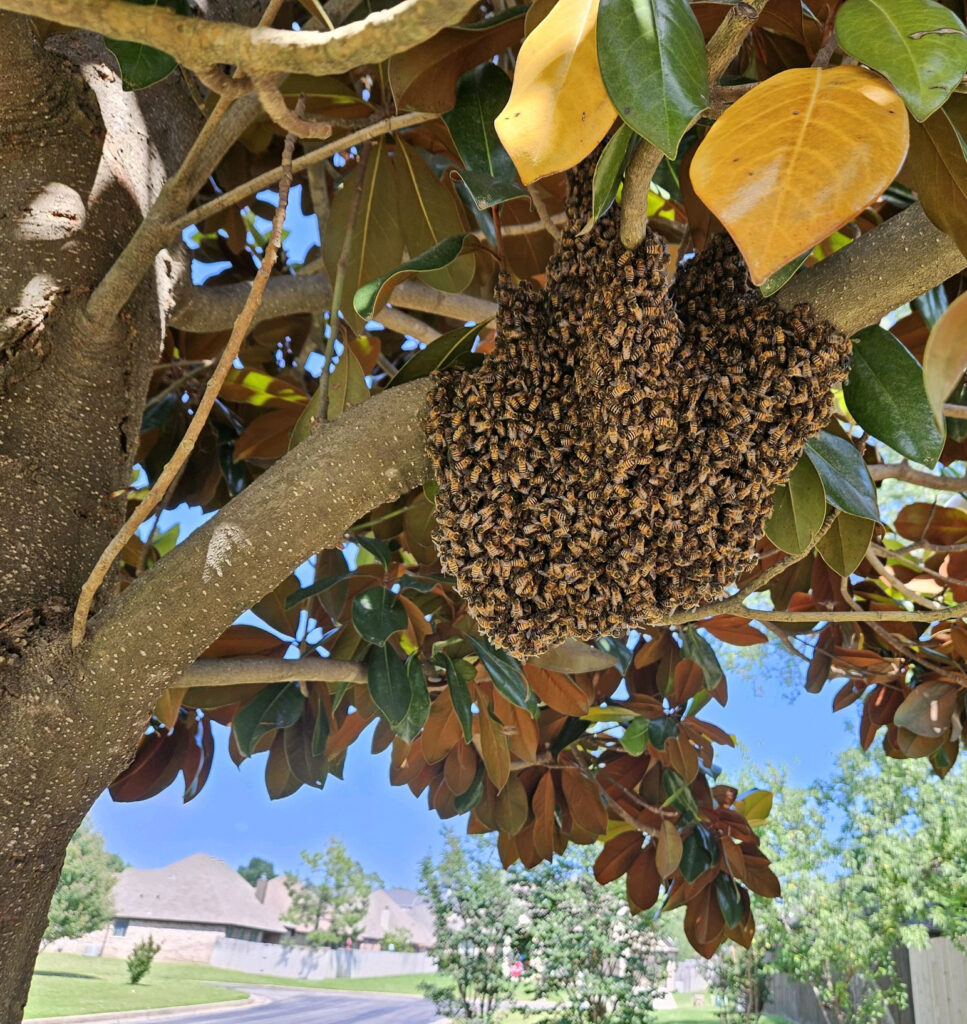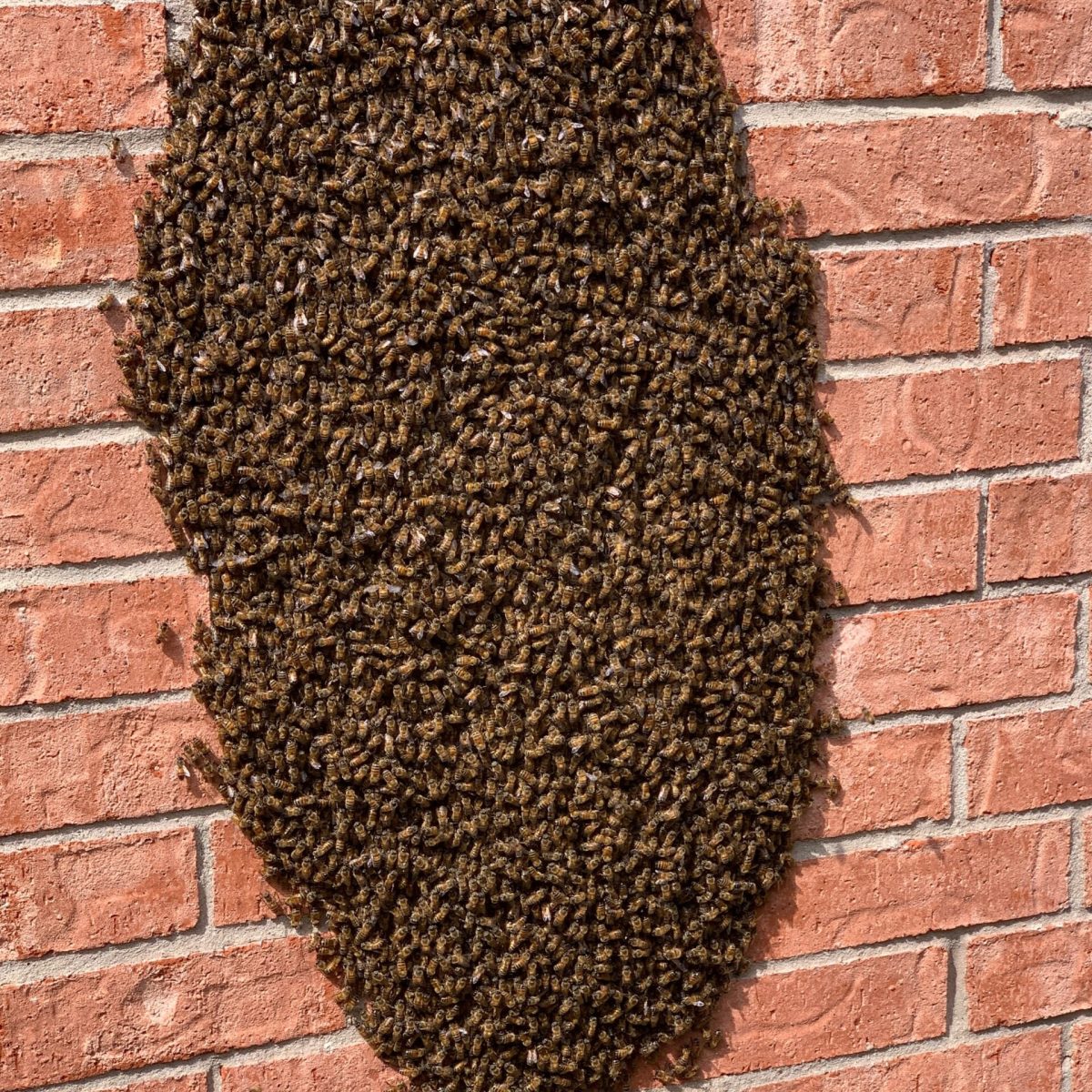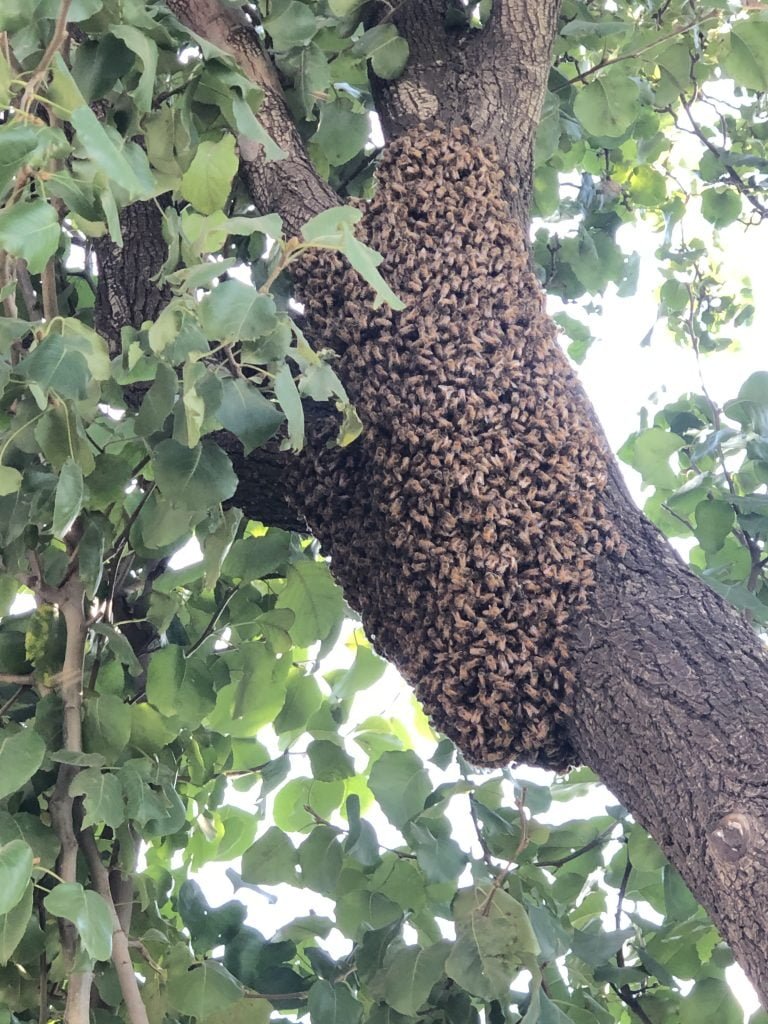Live Honeybee Swarm Pick-Up in Dallas, TX – Fast, Humane & Eco-Friendly
Honeybee swarming is a natural and fascinating event that typically occurs in spring and early summer when beehives outgrow their space. As colonies expand, a newly born queen emerges, prompting a portion of the worker bees to leave the hive and follow her in search of a new home. While swarming is a sign of a healthy colony, it can become a serious concern when bees settle near residential or commercial properties—especially around trees, attics, walls, or eaves.
Get a Free Estimate
Why Bees Swarm (And Why It Happens in Spring)

Swarming usually takes place between March and June as temperatures rise and food becomes more abundant. This growth season causes hives to become overcrowded, triggering the production of a new queen. Once she hatches, she leaves the original hive with thousands of worker bees to establish a new colony.
While swarming bees are typically non-aggressive, their presence on your property can cause anxiety and potential risk—especially if they take up temporary residence in a populated area.
Where Do Bees Swarm?
Bees may rest in a variety of places before settling permanently. Common swarm locations include:
Tree branches
Rooflines and eaves
Attics and wall voids
Outdoor furniture and sheds
Some swarms stay for only a few hours, while others may linger for days. It’s crucial to act quickly by contacting a professional before the bees decide to build a hive.





Our Safe and Humane Bee Swarm Removal Process
At Little Giant Beekeepers, our swarm pick-up service is thorough, bee-friendly, and backed by over 45 years of field experience:
1. Assessment & Planning
We begin by gathering information about the swarm’s location, size, and any access challenges. This helps us determine the best strategy for safe removal.
2. Gentle Swarm Collection
Our experienced beekeepers use specialized tools and techniques to safely collect the swarm without harming the bees or disturbing their natural behavior.
3. Relocation to a Safe Beekeeping Site
After collection, we transport the swarm to a local beekeeper or apiary, where they can thrive in a protected environment and contribute to pollination and food production.
4. Post-Removal Guidance
We offer expert advice to help prevent future swarms from settling on your property. This may include sealing entry points and maintaining your outdoor environment.
What Should You Do If You See a Swarm?
Seeing a swarm of bees can be alarming, but here’s what you should do to stay safe and support their relocation:
Keep Your Distance – Swarming bees are focused on protecting their queen and rarely aggressive. Avoid disturbing them.
Don’t Spray Chemicals or Water – Attempting to remove bees yourself can trigger defensive behavior and harm the bees.
Call Little Giant Beekeepers Immediately – We provide fast, humane removal services throughout North Texas.
Alert Neighbors if Needed – If the swarm is visible in shared areas, kindly notify your neighbors and let them know professional help is on the way.


Why Choose Little Giant Beekeepers for Swarm Removal?
With over four decades of experience, Little Giant Beekeepers is a trusted leader in humane bee removal in Dallas and surrounding areas. Our services are:
✅ Safe for bees, people, and pets
✅ Eco-friendly and pesticide-free
✅ Fast, responsive, and reliable
✅ Backed by collaboration with local beekeepers
✅ Designed to preserve pollinators and protect your property
We don’t just remove bees—we save and relocate them, supporting biodiversity and healthy ecosystems across North Texas.
Explore More Bee and Wasp Removal Services
In addition to live honeybee swarm pick-up, we offer a full range of bee removal services, including:
Whatever the situation, our team has the tools, training, and compassion to remove it safely and effectively.
Contact Us for Live Honeybee Swarm Pick-Up in Dallas, TX
If you’ve spotted a swarm or are interested in acquiring one for beekeeping, contact Little Giant Beekeepers today. We’ll respond promptly, remove the swarm safely, and help preserve these important pollinators.
